Advanced electromyography testing that pinpoints exactly what’s causing your muscle weakness, numbness, or tingling.
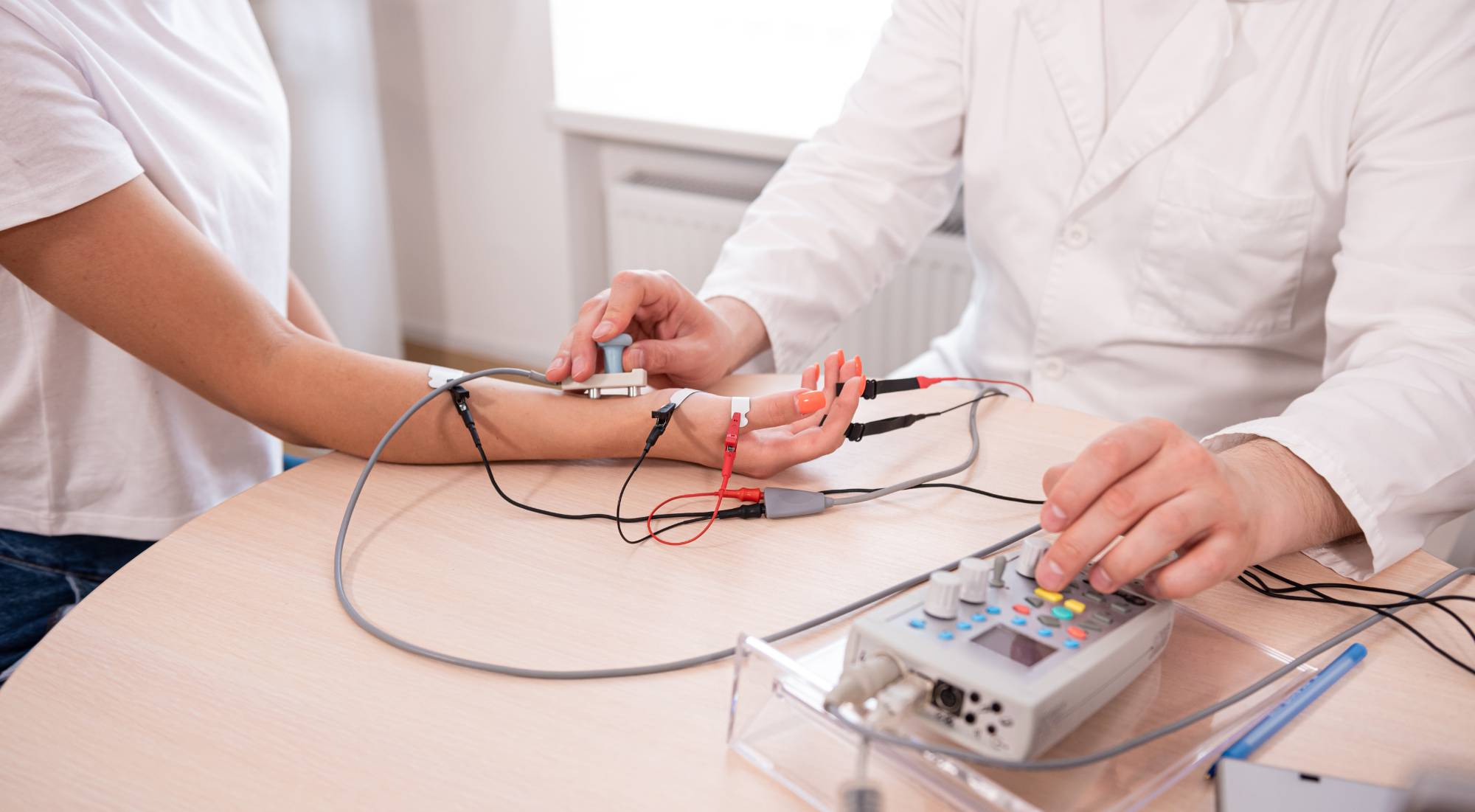
Reviews
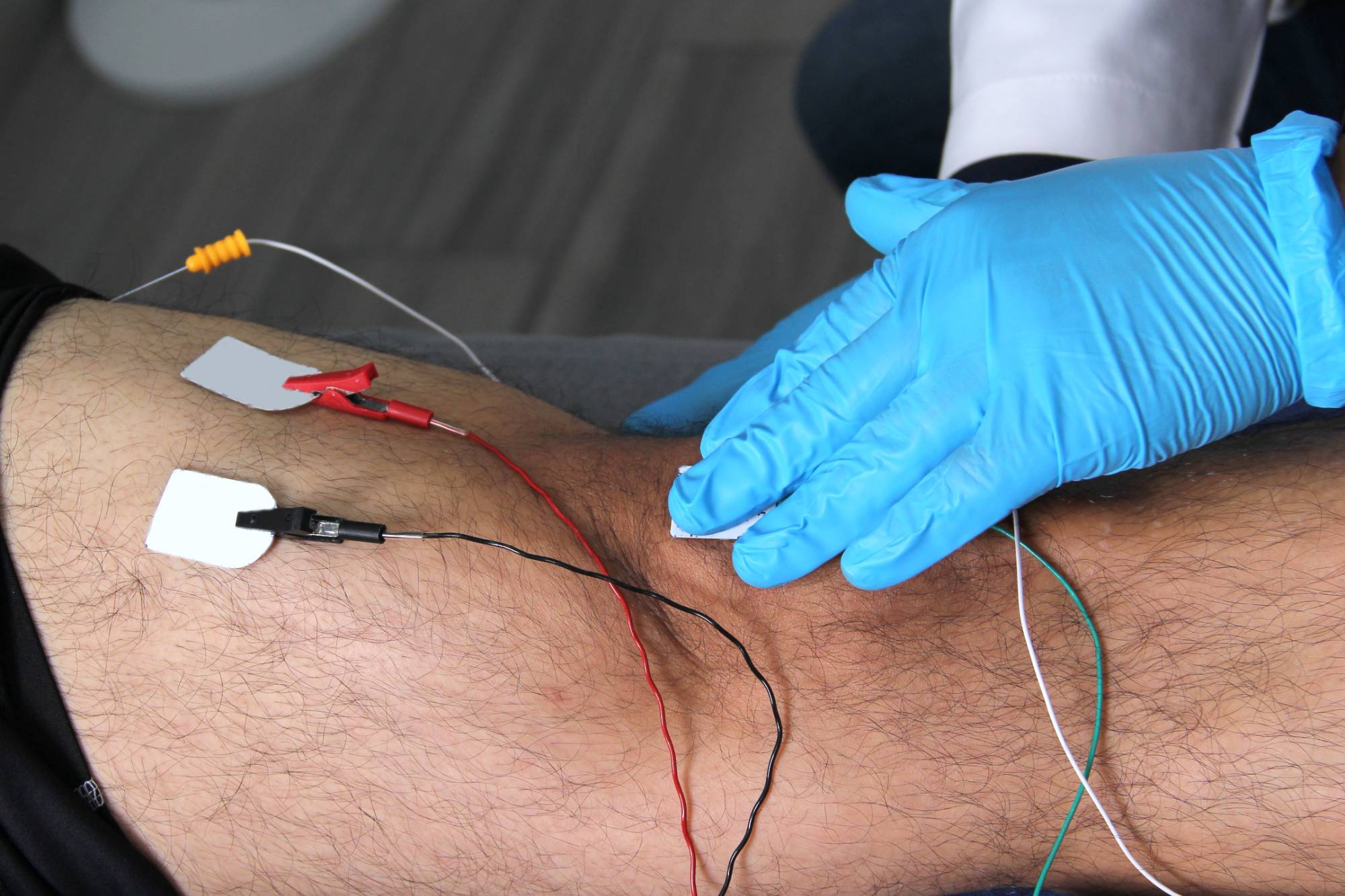
You’ve been dealing with unexplained symptoms long enough. That numbness in your hands, the shooting pain down your leg, or the muscle weakness that’s making daily tasks harder – you need real answers, not more guessing.
EMG testing gives you those answers. This diagnostic test measures the electrical activity in your muscles and nerves, showing us exactly where the problem is and how severe it might be. No more wondering if it’s carpal tunnel, a pinched nerve, or something else entirely.
Within an hour, you’ll have clear results that explain your symptoms. More importantly, you’ll have a path forward – whether that’s targeted treatment, physical therapy, or surgical consultation. The uncertainty ends here.
NY Spine Medicine has been providing specialized neurological diagnostics to Rockdale and surrounding Florida communities for years. We focus specifically on spine-related conditions and nerve disorders – this isn’t a side service, it’s what we do every day.
We use advanced EMG equipment and nerve conduction testing technology to ensure accurate results. Each test is performed by our experienced technicians and interpreted by board-certified specialists who understand exactly what we’re looking for.
You’re not just getting a test here. You’re getting expertise that comes from diagnosing thousands of nerve and muscle conditions, plus the local knowledge of how to coordinate your care with other Rockdale physicians.
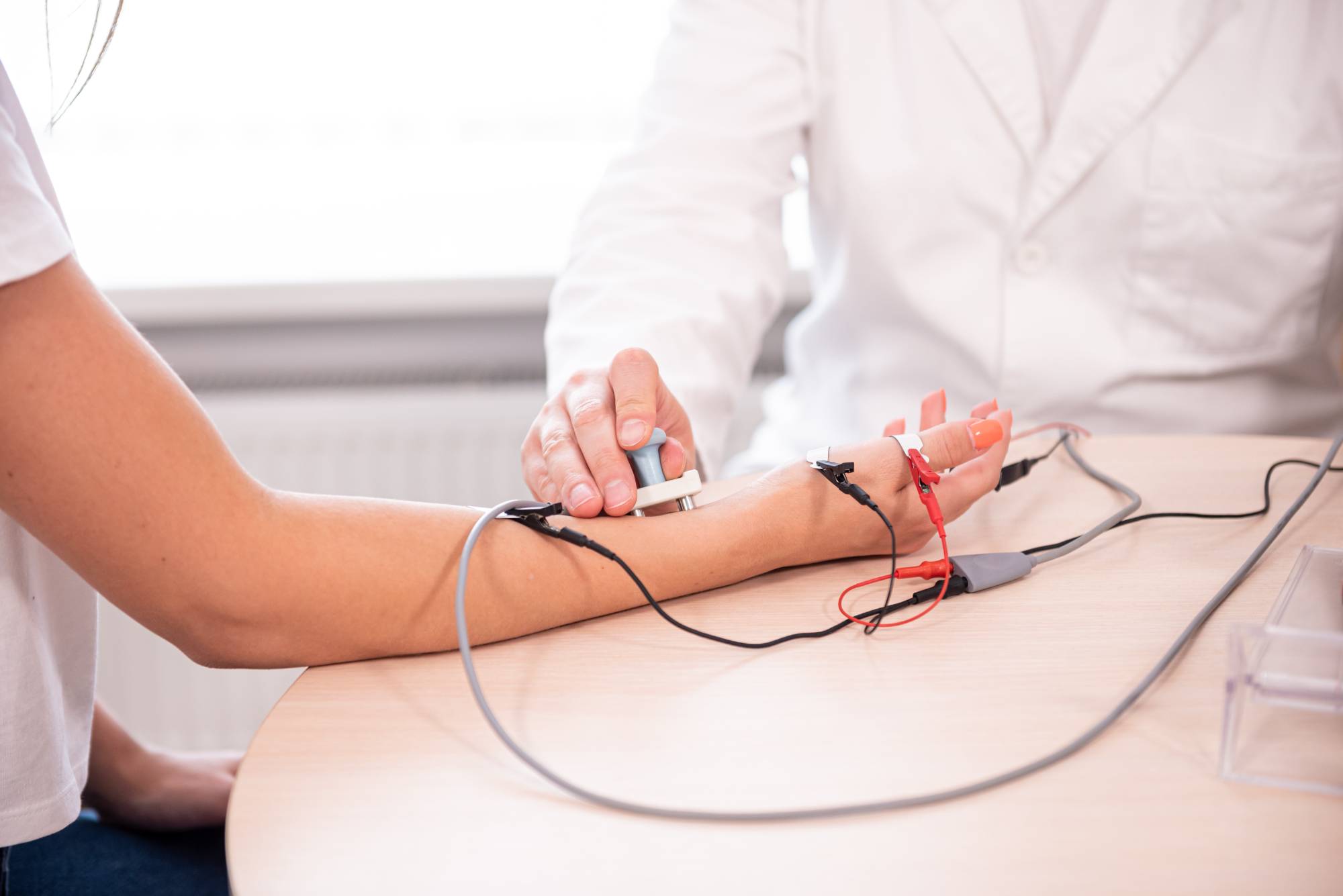
The EMG test happens in two parts, and the whole appointment typically takes 30 to 60 minutes. First is the nerve conduction study, where small electrodes are placed on your skin to measure how well electrical signals travel through your nerves. You’ll feel mild electrical pulses – uncomfortable for a moment, but not painful.
Next is the electromyography portion, where a thin needle electrode is inserted into specific muscles to measure their electrical activity. The needle is much thinner than those used for blood draws, and most patients find it more tolerable than they expected.
Throughout the test, you’ll see your results on the monitor in real time. Our specialist explains what they’re seeing as they go, so you’re not left wondering what’s happening. Once complete, you’ll get a full explanation of the findings and what they mean for your specific situation.
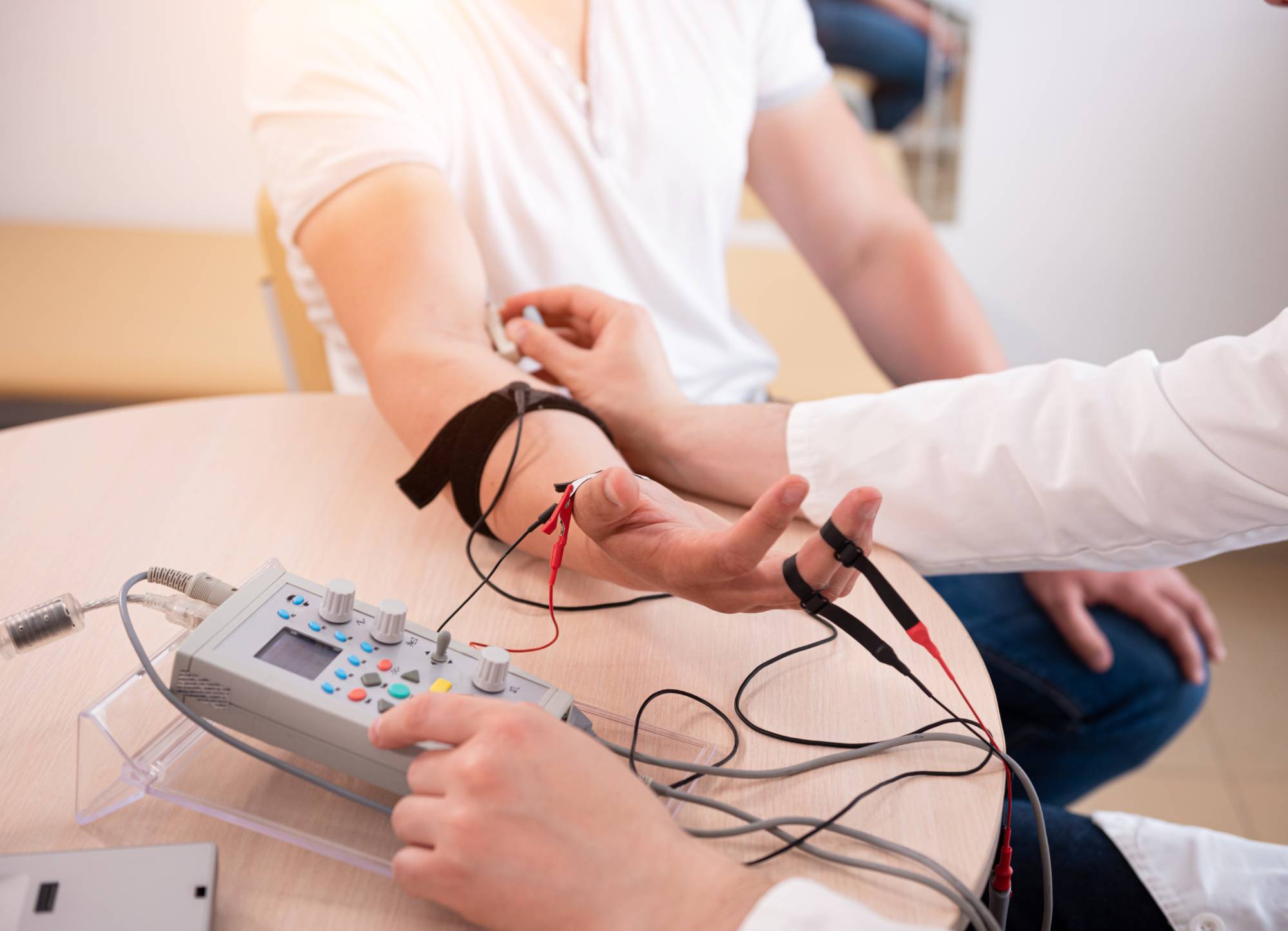
Ready to get started?
Your EMG testing includes both electromyography and nerve conduction studies in one appointment. This comprehensive approach tests both your nerves and muscles, giving a complete picture of what’s causing your symptoms. The testing can diagnose conditions like carpal tunnel syndrome, ulnar neuropathy, radiculopathy, peripheral neuropathy, and various muscle disorders.
You’ll receive same-day results with a detailed explanation of findings. The report goes directly to your referring physician, and we coordinate any follow-up care needed. If treatment is recommended, we’ll help connect you with the right specialists or therapy providers in the Rockdale area.
Most insurance plans cover EMG testing when medically necessary, and our billing team handles prior authorizations and insurance coordination. You can focus on getting answers instead of dealing with paperwork and coverage questions.
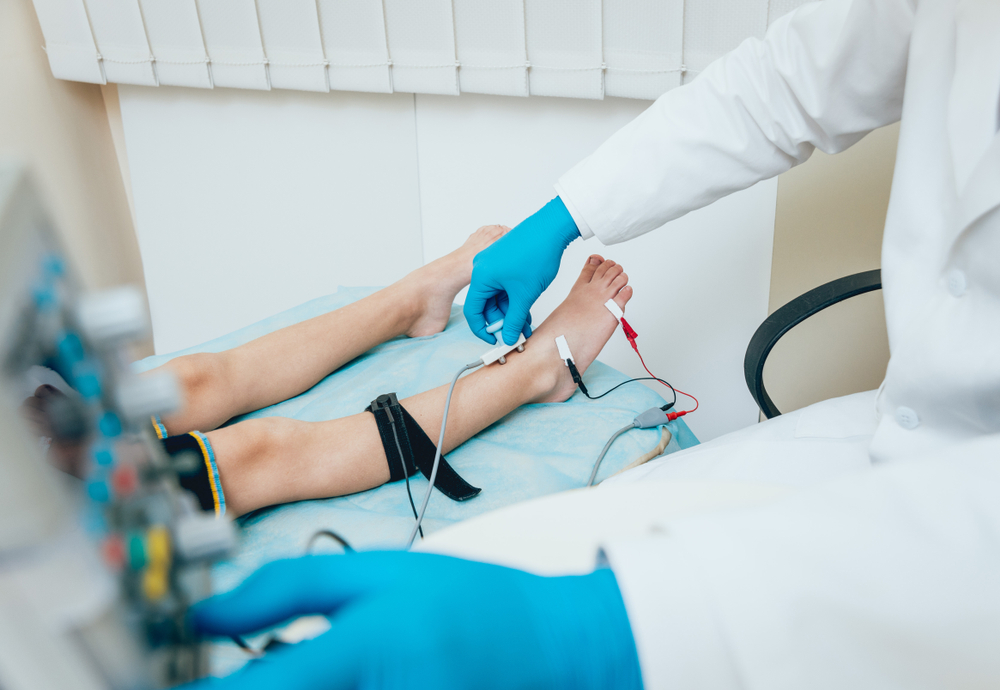
New York:
Florida:
Support